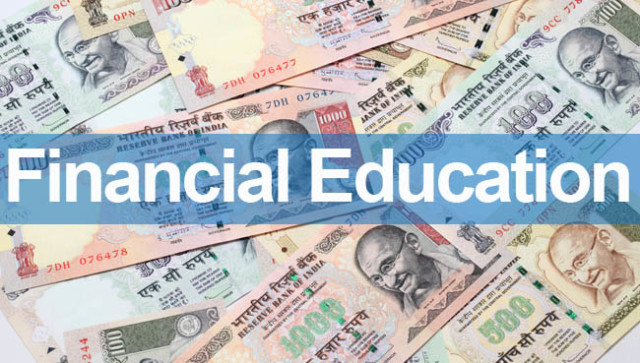You can hardly walk down two lanes in Mumbai or Delhi these days without encountering at least one gym, two boards announcing English-speaking classes, and three advertisements for helping you pass your 10+2 privately. It is probably the same in other cities and towns across the country as well, I am sure.
Well, demand tends to create supply, which means that a lot of our youth have started investing their time and money in fitness, improving their communication skills and completing their basic education. All very good, of course, but it left me wondering why there is no matching investment in financial education. After all, for a generation that seems obsessed with spending money, it is rather imperative that they learn a thing or two about it as well.
What, then, is ‘financial education’?
The word ‘education’ is traditionally defined as “the process of receiving or giving systematic instruction, especially at a school or university.” Now Financial education does not fall into this neat classification, since it is not usually taught in colleges, but rather is something every person needs to obtain for himself or herself. It is an understanding of money, of how the financial system works, and what a person can do to preserve and grow his or her wealth.

Every young person needs to get a grip through self-research on the following points:
The importance of savings
Understanding why every youngster should save a significant part of his or her income each month, and options available for investing such savings. We have covered this topic in greater detail here.
The banking system
What are Banks, what do they do, how fund transfers work, the different types of deposits. The Reserve Bank of India has also undertaken steps in this direction by launching ‘Project Financial Literacy’, a banking-focused repository of information available for free.
Taxes
This one is critically important. Far too often, a lack of proper tax planning means that a young salary-earner or entrepreneur pays more in taxes than he needs to. Or, even worse, does not pay as much as he needs to, and ends up in trouble with the Tax authorities. Read all you can about the subject and try to gain an understanding of the impact of all taxes on you. For a salaried person, the main tax you need to worry about is Income Tax, but for entrepreneurs and the self-employed, the ambit of taxation is much wider and professional help is strongly advised.
Insurance, both life and non-life
As mentioned in our article on Financial Tips for Young Adults, Insurance is a necessity for every youngster in India today, but it is also important not to rush headlong into the first policy someone tries to sell to you. We have covered some of the important aspects to look into for selecting a good Health Insurance plan in our article on this, available here and a similar one for Life Insurance will soon follow
Pros and Cons of availing of loans
One of the most dangerous financial traps that young Indians seem to fall into these days is of expensive debt, typically in the form of credit card expenditure or personal loans. It is essential to be highly selective about the types of loans one takes, and to only take them on if absolutely necessary. We recommend going through our detailed article on this issue, available here
An understanding of these points will lead every young person to better manage their own money as well as their professional lives. It might seem tedious to be studying and reading about these things, but I have known far too many middle-aged men and women who have said they regretted that they did not know enough about the importance of these issues when they were younger. After all, the later you learn about money, the lesser you will have to apply those lesson to!



























As per a survey, 76% of Indian adults have almost zero knowledge about financial concepts. The survey report also says India has the least financial literacy awareness as compared to other growing countries.